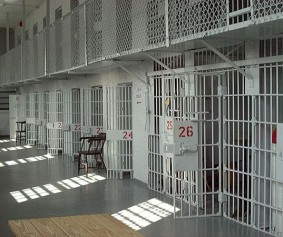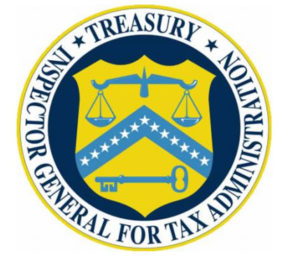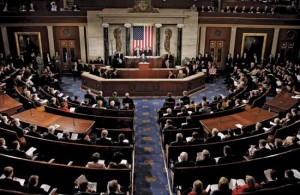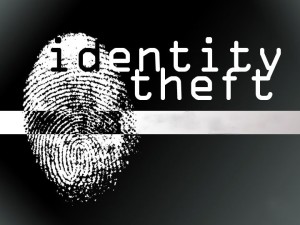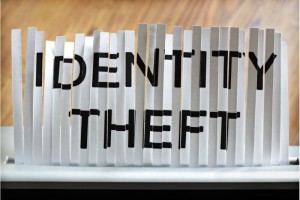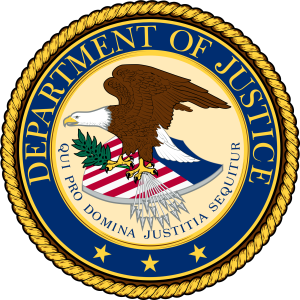Justice Department Accused of Abusing Process to Extend Statute of Limitations
Monday, February 10th, 2020 @ 3:47PM
Justice Department lawyers have improperly used requests for overseas evidence to buy more time to bring some fraud cases, a memo filed with the agency’s internal watchdog alleges.
The document, filed Friday and reviewed by The Wall Street Journal, accuses prosecutors of sending such a request to the U.K. when they already had access to similar information. It also says prosecutors delayed following up with their British counterparts, which, according to the author, former federal prosecutor Ankush Khardori, showed they didn’t urgently need that information.
Representatives of the Justice Department and its inspector general declined to comment about the memo.
If the allegations in the memo are determined to be true, they could indicate that the Justice Department has bent the rules in a way that damaged defendants’ rights. Suspects in many federal crimes can’t be charged more than five years after the crime has been committed. Such statutes of limitations were enacted to protect possible defendants from being accused long after a crime, when memories had faded and evidence may have disappeared.
Responses to mutual legal-assistance treaty requests, or MLATs, sometimes take months or years, so prosecutors can ask a federal judge under seal to suspend the statute of limitations for up to three years on a crime they are investigating while they seek foreign evidence for their case.
The statute can be subject to abuse, because the law doesn’t explicitly disallow MLATs’ use even if there are other ways to get the evidence and because the target of the investigation isn’t informed of the MLAT request, said Jeffrey Boles, a professor and chair of legal studies at Temple University’s Fox School of Business.
Mr. Khardori’s memo says, “The circumstantial evidence indicates that there was a deliberate effort to deceive the relevant judges into believing that [a Justice Department unit] had, in fact, made its requests for foreign evidence because of a legitimate interest in obtaining that evidence.” He adds, “The real purpose of the request and the application to the judge was to buy more time to build a case.”
The Justice Department approved 987 MLAT requests in 2017, compared with 1,178 in 2016. Those figures were up from 532 in 2015 and 497 in 2014, according to agency reports. The agency’s budget reports haven’t disclosed the number of requests granted in more recent years.
SHARE YOUR THOUGHTS
Should prosecutors have the ability to extend a statute of limitations by citing the need to pursue evidence located in foreign countries? Join the conversation below.
The allegations come as the Justice Department is dealing with a December inspector-general finding that the Federal Bureau of Investigation misled judges when it wanted to surveil a former Trump campaign adviser, Carter Page. By not presenting some evidence that was favorable to Mr. Page, the finding said, the FBI might have improperly targeted him. The Justice Department said in a court filing unsealed Jan. 23 that it should have discontinued Mr. Page’s surveillance far earlier than it did.
Mr. Khardori is separately under investigation by the inspector general for allegedly providing information to the media about another prosecution by the Justice Department, and had been on unpaid administrative leave. In a separate memo, he wrote that those allegations involved improper behavior by senior officials in the Fraud Section and entailed no classified information. The inspector general’s spokeswoman declined to comment on the alleged media leak.
Mr. Khardori said he resigned on Friday, and declined to comment further on the memos and his resignation.
In one internal meeting on the foreign-evidence requests, one prosecutor advised fellow attorneys “not to put ‘in writing’ anything that would suggest” that an evidence request was designed to delay the statute of limitations, Mr. Khardori said in the Friday memo. The people weren’t named in the memo, and the Justice Department and its inspector general declined to comment on the matter.
The document describes two cases in which prosecutors allegedly misused such requests to give themselves more time: one that targeted Barclays PLC’s former global head of fixed-income and currencies trading, Robert Bogucki, and another that involved former traders at Bank of America Merrill Lynch accused of using a manipulative trading tactic known as “spoofing.”
In the Barclays case, prosecutors sought information from the United Kingdom about a multibillion-dollar foreign-exchange trade for Hewlett Packard Enterprise Co. days before the statute of limitations for alleged wrongdoing related to that deal was set to expire in August 2016, according to court documents.
Barclays had actively cooperated with the Justice Department’s investigation and had already provided reams of related material. It also had a continuing commitment to assist authorities as part of an earlier settlement in 2012.
Attorneys for Mr. Bogucki, who was ultimately acquitted last year of front-running the transaction, asked the court in 2018 to look into the timing of the assistance request.
“Six weeks before she filed the MLAT, she was sitting on the hotel bill that she was asking for in the MLAT. She had it in her email inbox. That’s a remarkable set of facts,” Mr. Bogucki’s attorney, Sean Hecker, told a judge, referring to a prosecutor who dealt with the MLAT.
According to court records, the judge agreed there was cause for concern and ordered the Justice Department to provide documents to Mr. Hecker about the MLAT request. Mr. Hecker declined to comment on the allegations in the memo.
Days later, instead of turning over the documents, prosecutors obtained a superseding indictment to extend the statute of limitations using a different theory. After trial last March, Judge Charles Breyer dismissed the case, saying it didn’t appear to constitute a crime.
A Barclays spokeswoman declined to comment on the memo’s allegations.
Mr. Khardori said in the Friday memo that he raised the issue with several colleagues and sent them an article by a former national-security prosecutor that questioned the use of foreign-evidence requests. The colleagues were dismissive, he wrote. “The National Security Division wouldn’t recognize a statute of limitations if it punched them in the face. I give this guy no credit,” one responded, and the other added: “HAHAHAHAHHAAH!” according to emails reviewed by the Journal.
The people weren’t named in the memo. The Justice Department declined to comment on the matter.
In the spoofing case, Mr. Khardori writes that he and others concluded the MLAT shouldn’t be used for extending the statute of limitations.
In the spoofing case, Mr. Khardori writes in his Friday memo that an MLAT request was completed and, based on it, a federal judge issued an order giving the government more time to investigate. But he and others decided against relying on it because the MLAT appeared to have been used to buy more time for the government.
Eventually, the Justice Department settled on a different strategy to bring the case. The former traders were criminally charged in January 2018 and are scheduled to stand trial in October. A Bank of America spokesman declined to comment on the memo’s allegations.
Write to Aruna Viswanatha at Aruna.Viswanatha@wsj.com and Dave Michaels at dave.michaels@wsj.com
Posted by cfegov
Categories: Fraud, Waste and Abuse

